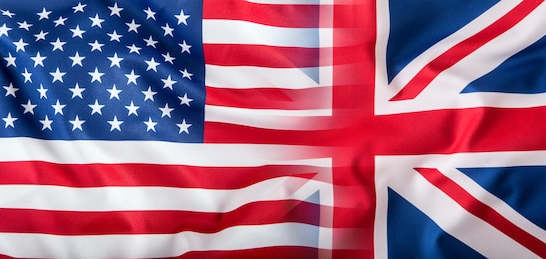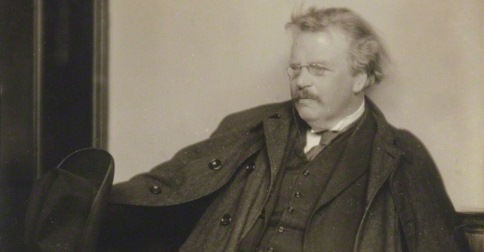Belloc, Chesterton and the USA
Boris Jonhson has declared July 4th “our independence day”, when people can return to pubs and restaurants. Leaving aside the advisability of the policy or indeed the character of the prime minister, his his light-hearted catchphrase does remind us how our fortunes are connected, root and branch with those of the USA, and have been so for at least one hundred years and certainly since 1956 when America clearly told Britain who was boss after the Suez crisis. The lion became the poddle.
It is interesting what Belloc (himself married to an Irish-American) thought of this changing relationship with America as he considered this and many other important topics as he sailed around the coast of Britain in his boat The Nona in 1925. Belloc’s great friend, Gilbert Chesterton wrote a poem on the topic, which we can only read now with a wry smile.
America has Mastered us, Belloc 1925
Millions of children are told that the American colonies revolted because they were unjustly taxed by England; that after a long struggle they won because they were right; because they had the same qualities as our own sacred selves being of our own sacred blood; that the trouble ought never to have arisen, and was only due to the folly of a few misguided and pig-headed English gentlemen who happened to hold political power. I will bargain that – above the labouring mass – this is the attitude taken by nine men out of ten in England to-day towards the American War of Independence.
On the top of that all are told – or given the impression, at any rate – that England soon repented of her error, and came to regard the United States as the noblest of her children. They are not told that an expensive war had been waged by the mother country in defence of the colonists; that after long and difficult negotiations had been undertaken to see how that expense could be shared; that certainly a majority of the colonists – and probably a large majority – were on the side of England, and against the rebels, and that the final defeat of England was mainly due to the intervention of the French, and especially to the more close concentration of the French fleet.
They are not told that the English people regarded themselves as perfectly right, that they continued to detest the Americans with the most vivid hatred for a hundred years afterwards, or that the policy of pretending a friendship with America is quite recent, and only grew up after the strength of the new country was apparent, when the long agony of the civil war had turned in the favour of the North. Worst of all, they are told that this pretence of identifying the United States with England is being carried on against increasing odds, as the United States becomes less and less English in tradition, in blood, in morals, and everything else.
The false legend is swallowed whole, and it is a very good example of how mythology can have a direct practical effect for ill.
Coming to his own day, Belloc reflected how the Dawes Plan of 1924, ensured that American finance became dominant over the European economies –
Those who govern us have been compelled to accept the Dawes Report – even to set it working – and they watch anxiously its coming effect upon that balance whereby England lives. They are caught in a trap. Had they known a plain, modern historical truth, that America is a foreign country, they could have preserved an independent national policy. It is now too late. America has mastered us.
AMERICANISATION
G.K. Chesterton
Britannia needs no Boulevards,
No spaces wide and gay:
Her march was through the crooked streets
Along the narrow way.
Nor looks she where, New York’s seduction,
The Broadway leadeth to destruction.
Britannia needs no Cafés:
If Coffee needs must be,
Its place should be the Coffee-house
Where Johnson growled for Tea;
But who can hear that human mountain
Growl for an ice-cream soda-fountain?
She needs no Russian Theatre,
Where Father strangles Mother,
In scenes where all the characters
And colours kill each other:
Her boast is freedom had by halves,
And Britons never shall be Slavs.
But if not hers the Dance of Death,
Great Dostoievsky’s dance,
And if the things most finely French
Are better done in France—
Might not Americanisation
Be best applied to its own nation?
Ere every shop shall be a store
And every Trade a Trust . . .
Lo, many men in many lands
Know when their cause is just.
There will be quite a large attendance
When we Declare our Independence.
Chesterton’s poem, picks up on Belloc’s concern that a distinctive English culture risked being overwhelmed by the commercial tidal wave racing across the Atlantic to Britain. His poem also alludes to the horrors that had recently taken place in Russia with revolution and civil war. The unspoken concern is that the fear of communism will weld England even closer to America; but the poet yet hopes that England can remain a distinctive nation, just as France may remain distinctively French. Sadness but probably not surprise would be the reaction of Belloc and Chesterton if they could see England today.


